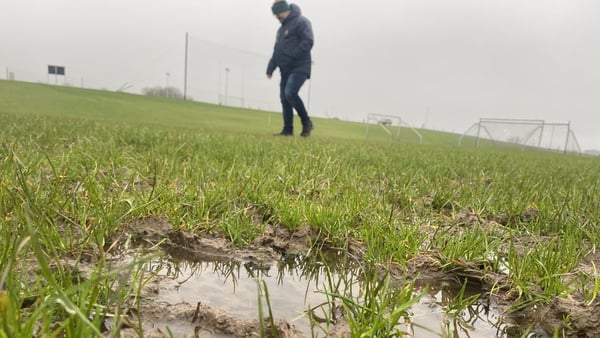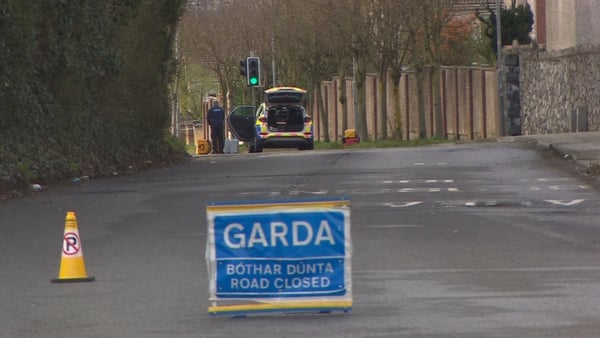A group of activists and an indigenous Colombian leader have protested outside the AGM of packaging company Smurfit Kappa in Dublin today.
The protest centres around the company's business operations in the South American country.
The protestors claim that Smurfit Kappa's commercial plantations are located on lands with ancestral links to the Misak people.
They also raised concerns about the environmental impact the business is having on the region.
Pablo Josse Velasco Tumina of the Misak people in the Cauca region of Colombia travelled to Ireland for the demonstration, where he was joined by members of the Latin America Solidarity Centre and SumOfUs group.
Narella Forte, a co-ordinator with the Latin America Solidarity Centre, said "it's not only the lands of indigenous people that have been taken, it's the environmental damage that is irreversible".
"We want them to give the lands back and to stop doing this kind of mono-cultive aggression into the soil," she said.
"We really want them to hear us out. Give the people back the land and stop destroying the environment," she said.
She said that these stories are happening in the Global South and the groups are trying to bring them into the "Irish public eye".

In a statement, Smurfit Kappa says it "emphatically rejects any allegations made against us asserting any illegality regarding our acquisition of the Smurfit Kappa forests or the conduct of our employees or anyone acting on our behalf in Colombia".
"We unequivocally reject these unfounded allegations which do not reflect the reality of our contribution to the local community and our environmentally sustainable management of the forests", it said.
The company said it has operated in Colombia since 1944, where it owns 67,000 hectares of land. This includes farms of 2,700 hectares in the Cajibio region.
Smurfit Kappa said it began lawfully acquiring farms in the Cajibio area of Cauca 52 years ago from legitimate property titleholders, who had previously dedicated the land to agriculture and the grazing of livestock.
"Prior to Smurfit Kappa's acquisition of these farms, there was no indigenous community inhabiting the Cajibio municipality. We first became aware of the Misak indigenous community’s protestations against Smurfit Kappa’s activities in July 2021," it said.
The company said it has complied with all relevant Colombian legislation and consulted with indigenous communities where required.
"There was never a requirement to consult with indigenous communities in Cajibio since all Smurfit Kappa forestry in Colombia is outside of the officially recognised reserves in Cajibio."
Smurfit Kappa also said it does not harvest or use any wood from rainforests.
It said it has invested more than 7 million US dollars locally in "sustainable agricultural and forestry production", as well as the maintenance of public roads, infrastructure development, and "other social initiatives which benefit local communities".
It said that "many attempts" have been made to engage with the Misak community and would be happy to arrange a meeting between the appropriate local representatives of Smurfit Kappa and the Misak community.






